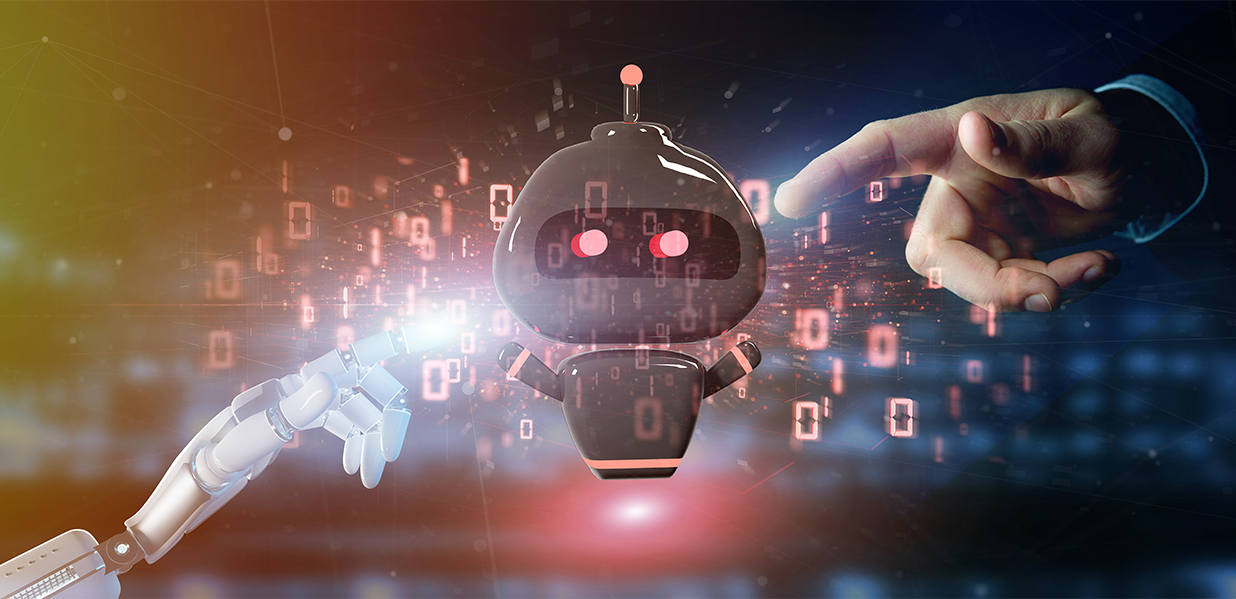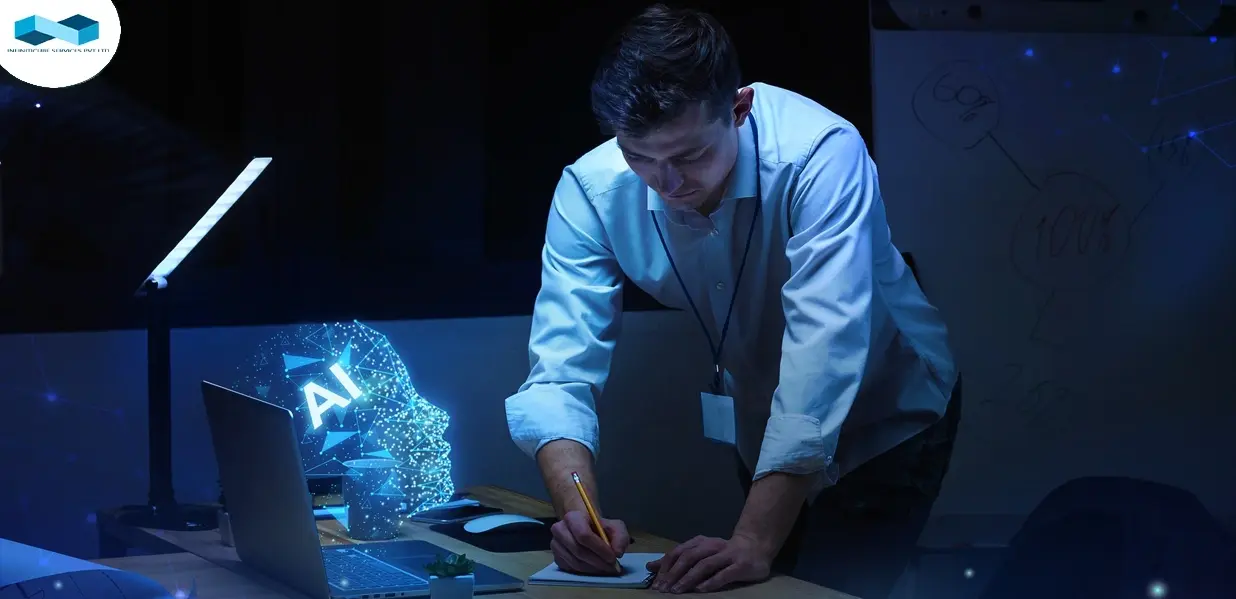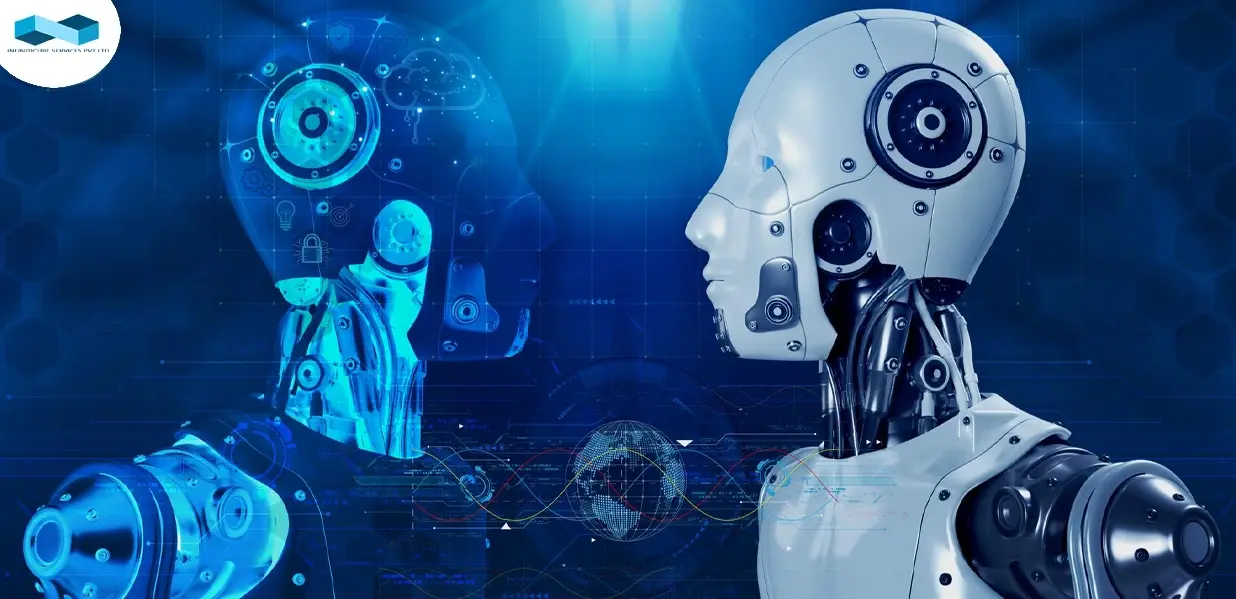Exploring Advanced Machine Learning Projects: Pushing the Boundaries of AI
Introduction
Advanced machine learning projects have shown their ability to alter whole industries, from enabling self-driving cars to producing text that is incredibly human-like. However, it's becoming more and more obvious that there is still unexplored ground to be conquered as we stand at the fork in the road of possibilities.
The field of artificial intelligence has expanded dramatically, with innovations that were once the stuff of science fiction now playing a significant role in our daily lives. But what motivates this change? It's the creativity of programmers, researchers, and enthusiasts. Their guts and rise to the difficulties presented by pushing the envelope of AI capabilities led a journey into uncharted territory, crossing predetermined boundaries,
In this blog, we'll go into the core of advanced machine learning projects, where advanced computation, vast data sets, and advanced algorithms come together to build systems that can learn, adapt, and change. We'll throw light on some mind-blowing initiatives that show how AI has the capacity to transform businesses, foster human creativity, and even alter how we view intelligence itself.
Pushing Boundaries Of Machine Learning Projects with Real-world Applications
The limits of machine learning projects, we once considered conceivable are constantly being pushed, reinterpreted, and increased in a variety of fields, including healthcare, transportation, language processing, and finance. Let's examine some of these trailblazing programs that are influencing AI's present and future in more detail.
Healthcare and Medical Imaging
In order to improve diagnosis accuracy, streamline medical procedures, and potentially contribute to ground-breaking discoveries, the healthcare industry has embraced AI and machine learning. Complex medical data is being sorted through cutting-edge machine learning algorithms to help with disease identification, treatment planning, and prognosis.
Radiologists are getting essential assistance in spotting irregularities in X-rays, MRIs, and CT scans thanks to AI-powered medical imaging. Advanced machine learning projects are changing healthcare diagnostics by analyzing massive information and seeing patterns that may evade the human eye. This eventually improves patient outcomes.
Autonomous Systems
With the aid of cutting-edge machine learning algorithms, the dream of driverless automobiles is quickly becoming a reality. Self-driving vehicles can observe their surroundings, make split-second judgments, and negotiate challenging road scenarios thanks to sensors and AI systems.
But it goes beyond automobiles. AI is also progressing in the fields of robotics and drones, where autonomous systems are being used for jobs like warehouse automation and aerial surveillance. These applications are not only changing sectors but also how we interact with the environment and technology.
Natural Language Processing (NLP) Innovations
There is a wide range of transformative applications that have been made possible by advanced machine learning projects to comprehend, analyze, and produce human language. Advanced NLP models can produce text that is logical and relevant to its context, paving the door for AI-generated content. Sentiment analysis algorithms allow businesses and governments to make educated decisions by measuring public sentiment on a large scale.
Real-time translation has also overcome language barriers, bridging cultures and people like never before. The distinction between human and machine communication is becoming more hazy as a result of NLP advances.
Creative AI in Arts and Entertainment
In the arts and entertainment sector, the combination of AI and creativity has produced some truly astounding inventions. Artificial intelligence-generated literature, music, and art challenge established ideas of creativity. Deep learning models can create paintings that are reminiscent of well-known artists or compose music in the style of famous composers.
AI is being incorporated into video games to produce dynamic, responsive, and engaging gameplay. AI-generated characters and environments are being added to virtual reality narratives, improving the storytelling format. The link between technology and human expression is being redefined by these machine learning projects.
A new era of data-driven decision-making is beginning in the field of finance thanks to improved machine learning. Algorithmic trading systems execute transactions extremely quickly while taking advantage of minute market moves by combining historical data with real-time market information. Large transaction volumes are analyzed by AI-powered fraud detection models to spot suspicious activity and safeguard customers.
As AI-driven insights make it possible for people to manage their finances more skillfully, personalized financial services are becoming a reality. AI integration in the banking sector aims to increase profits while simultaneously lowering risks and enhancing client experiences.
Challenges and Ethical Considerations
While advanced machine learning projects have the potential to revolutionize our world, they also raise difficult problems and moral dilemmas that require our attention. Let's examine some of these difficulties as well as the moral implications of pushing the limits of AI.
Handling Vast Amounts of Data
Large datasets are frequently needed for training and fine-tuning models in advanced machine learning projects. The difficulty is in gathering, preserving, and managing this data while maintaining its correctness and quality. There are considerable obstacles to be overcome, including worries about data privacy and the possibility of bias in the data. Building strong and dependable AI systems requires striking a balance between data volume and data integrity.
Model Interpretability and Explainability
As AI models become more complex, they can resemble "black boxes," making it difficult to understand how they arrive at their decisions. This lack of transparency can be problematic, especially in critical projects like healthcare and finance. Ensuring that AI models provide explanations for their decisions—making their internal workings more interpretable—is crucial for building trust and facilitating accountability.
Addressing Bias and Fairness
Biases found in training data are prone to be inherited by AI systems. As a result, outcomes may be unfair or discriminating, maintaining existing biases. To ensure that AI algorithms treat everyone equally and without bias, it is crucial to identify and mitigate bias. To reduce inadvertent bias, ethical AI development requires ongoing monitoring and modification.
Ensuring Data Privacy and Security
Data privacy and security issues are brought up by the sensitive nature of the data utilized in AI initiatives, especially in industries like healthcare and finance. Finding a careful balance between using data to generate insightful insights and protecting people's personal information is difficult. To safeguard user privacy, it is essential to put strong encryption, access controls, and anonymization methods into machine learning projects.
Potential Job Displacement and Societal Impact
AI developments promise to boost production and efficiency, but they also spark worries about job loss and larger societal effects. Certain work roles may become outdated as automation spreads, which could cause economic and societal unrest. A proactive strategy that incorporates education, reskilling, and the development of new employment positions is needed to prepare for the effects that AI will have on the workforce.
The Future Landscape of Advanced AI
The journey into the realm of cutting-edge AI projects has illuminated not only the immense potential of AI but also the intricate ethical considerations that accompany its growth. So, what lies ahead in the future of advanced AI? Let's explore the trajectory that this transformative field is likely to take.
Continued Collaboration Between AI and Human Experts
Advanced AI's future is not one of competition, but rather of cooperation. Human experts will increasingly collaborate with AI systems, which will improve their skills and provide information that would be otherwise impossible to obtain. The power of human-AI collaboration is seen in fields like medicine, where AI assists in disease diagnosis and offers treatment alternatives. These collaborations increase human competence, which eventually results in better choices and better results.
Integration of AI Across Industries
Advanced AI will increasingly be incorporated across a range of businesses. AI-powered solutions will streamline operations, optimize resource allocation, and unleash efficiency in industries ranging from agriculture to manufacturing, retail, and education. Businesses and organizations will need to spend in training their employees to effectively interface with AI technologies as AI becomes an essential component of operations.
Responsible AI Development and Governance
The forefront of AI endeavors will be ethics and responsible AI development. Governments, businesses, and developers will work together to create frameworks that direct the creation and implementation of AI systems. Responsible AI will depend on transparent algorithms, objective datasets, and adherence to privacy laws. We can make sure that AI serves all societal members and doesn't reinforce inequality by putting ethics first.
Addressing Societal and Workforce Impact
The threat of job loss brought on by automation and AI is still present. However, this shift also results in the emergence of brand-new positions with a focus on the creation, upkeep, and control of AI. It will be essential to make educational and reskilling investments in order to provide people with the skills they need to succeed in an AI-augmented workforce. The negative effects of AI integration will be minimized, and their positive effects will be increased, with a proactive approach to workforce transformations.
AI Empowering Creativity and Innovation
The exciting area of AI's machine learning projects to support human creativity is one that will keep developing. AI's contribution to fostering human creativity is becoming more and more clear, from helping with scientific breakthroughs to co-creating works of art and music. The combination of human creativity and computational power allows for the development of innovative ideas and previously unimaginable solutions.
Tackling Grand Challenges Through AI
In order to address major issues like climate change, healthcare access, and poverty alleviation, advanced AI will be essential. Predictive modeling, data analysis, and AI-driven simulations will offer solutions to complicated global problems. Researchers and decision-makers will be better equipped to make wise choices for a more sustainable future because of the capacity of machine learning projects to absorb and comprehend enormous amounts of data.
Getting Involved in Advanced ML Projects
The journey into the world of cutting-edge AI research has shed light on both the enormous potential of AI and the complex ethical issues that go along with its development. What then may we expect from advanced Machine learning projects in the future? Let's investigate the likely course that this transformative field will take.
Continued Collaboration Between ML and Human Experts
Advanced ML's future is not one of competition, but rather of cooperation. Human experts will increasingly collaborate with ML systems, which will improve their skills and provide information that would be otherwise impossible to obtain. The power of human-ML collaboration is seen in fields like medicine, where developed machine learning projects assist in disease diagnosis and offer treatment alternatives. These collaborations increase human competence, which eventually results in better choices and better results.
Integration of AI Across Industries
Advanced AI will increasingly be incorporated across a range of businesses. AI-powered solutions will streamline operations, optimize resource allocation, and unleash efficiency in industries ranging from agriculture to manufacturing, retail, and education. Businesses and organizations will need to spend in training their employees to effectively interface with AI technologies as AI becomes an essential component of operations.
Responsible AI Development and Governance
The forefront of AI endeavors will be ethics and responsible AI development. Governments, businesses, and developers will work together to create frameworks that direct the creation and implementation of AI systems. Responsible AI will depend on transparent algorithms, objective datasets, and adherence to privacy laws. We can make sure that AI serves all societal members and doesn't reinforce inequality by putting ethics first.
Addressing Societal and Workforce Impact
The threat of job loss brought on by automation and AI is still present. However, this shift also results in the emergence of brand-new positions with a focus on the creation, upkeep, and control of AI. It will be essential to make educational and reskilling investments in order to provide people with the skills they need to succeed in an AI-augmented workforce. The negative effects of AI integration will be minimized, and their positive effects will be increased, with a proactive approach to workforce transformations.
AI Empowering Creativity and Innovation
The exciting area of AI's potential to support human creativity is one that will keep developing. AI's contribution to fostering human creativity is becoming more and more clear, from helping with scientific breakthroughs to co-creating works of art and music. The combination of human creativity and computational power allows for the development of innovative ideas and previously unimaginable solutions.
Tackling Grand Challenges Through Machine Learning Projects
In order to address major issues like climate change, healthcare access, and poverty alleviation, developing advanced machine learning projects will be essential. Predictive modeling, data analysis, and AI-driven simulations will offer solutions to complicated global problems. Researchers and decision-makers will be better equipped to make wise choices for a more sustainable future because of their capacity to absorb and comprehend enormous amounts of data.
Conclusion
Advanced AI and machine learning initiatives have been explored in a way that has been nothing short of amazing. We have investigated the cutting-edge of innovation, seen the transformational effects on several industries, and negotiated the complex ethical issues that direct this journey. Let's consider the amazing journey we've traveled as we close the door on this exploration.
The applications of advanced machine learning projects go beyond what was originally thought to be feasible, ranging from healthcare to autonomous systems, natural language processing to creative AI. We've witnessed how AI is transforming how we engage with technology, enhancing human knowledge, and igniting creativity. These achievements are not merely stepping stones; rather, they are stepping stones on a path of constant advancement.
The key to securing a prosperous and just future is responsible AI development, ethical considerations of bias and fairness, and thoughtful integration into our societies and enterprises.
The future is paved with opportunities. It's a path where people and technology work together to accomplish goals that neither could accomplish on their own. A path that enables us to confront enormous problems and fosters our creativity. It's a path that will take us to a time when artificial intelligence (AI) will shape industries, improve human potential, and improve our world.
Are you prepared to advance your machine learning projects? Our team of skilled professionals is present to assist you. We specialize in creating cutting-edge solutions that push the limits of AI and have a proven track record of innovation and knowledge.
To discuss your plans, goals, and difficulties, get in touch with us. We'll set out on a path of invention, morality, and superior AI together. Let's push the limits of what is conceivable with advanced machine learning.
Here is where your Machine Learning project begins.
 June 27, 2025
June 27, 2025
 Balbir Kumar Singh
Balbir Kumar Singh
 0
0
 June 13, 2025
June 13, 2025
 Balbir Kumar Singh
Balbir Kumar Singh
 0
0









Leave a Reply